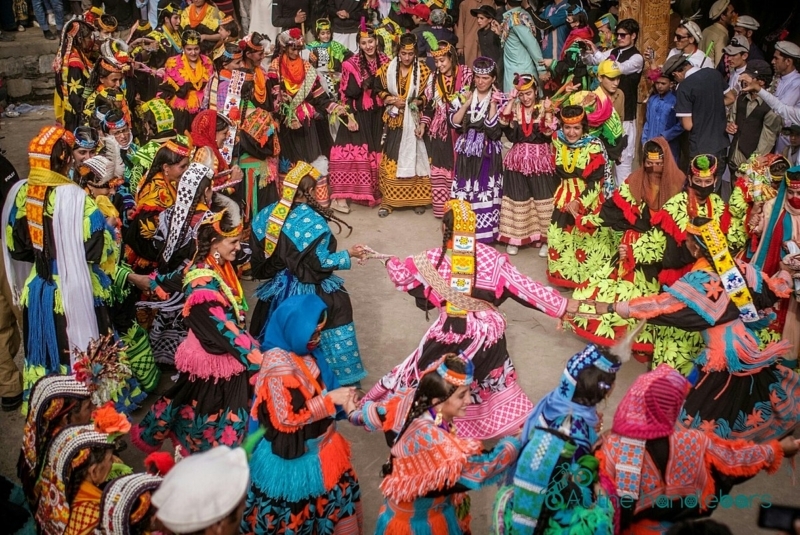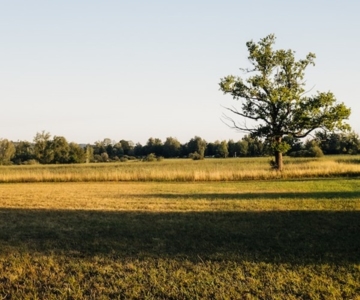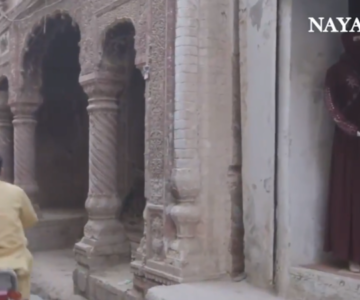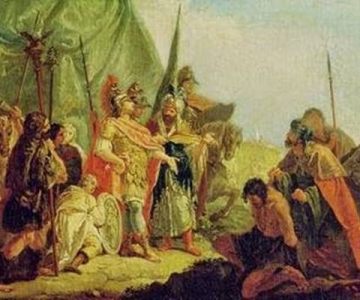By Salman Rashid
There is no historical evidence of Alexander or his men straying north of the ridges of the Hindu Kush Mountains into Kafiristan. But we know that the Greeks and the Kalasha themselves are today sold on this piece of charlatanry. The simple answer would thus be to turn to DNA testing
Every half-baked expert who writes on Chitral has to tell us of the Kalasha people of Kafiristan being the progeny of Alexander of Macedonia or at least of the many soldiers he ‘left behind’. So long has this fib been bandied about that even the poor Kalasha have established an amorphous and, at the same time, rigid belief in it.
The refrain is always been that the soldiers ‘left behind’ were responsible for starting the Kalasha line. This implies that Alexander reached Chitral and turning back left his soldiers there.
One so-called travel writer of the Urdu language has even gone so far as to tell his undiscerning readers that because the Kalasha have horse heads carved on their doors, they are Greeks. The connection being that Alexander and his army came on horseback. That is to say the horse was unknown in Chitral until Alexander’s army arrived!
The horse was domesticated some five thousand years ago and it would be absurd to imagine that the Kalasha people had not caught on to the secret in three thousand years. This is one of the greatest falsehoods ever.
There is no uncertainty regarding Alexander’s route from his homeland across the Asian landmass to the Beas River and back to Babylon. Let us then examine how he entered what is now Pakistan.
In the vicinity of Jalalabad in Afghanistan, Alexander divided up his army. Two divisions were to force their way through the Khyber Pass while he led the rest northeast up the Kunar River to cross the Nawa Pass into modern day Nawagai, the capital town of Bajaur. Following a northeasterly line he crossed the Katgala Pass to reach Swat.
At the gateway into Swat he may have paused at Chakdara. Perhaps in an idle moment and if the evening was pleasant as it must have been in mid-February, he may have climbed a hill to look into Swat Valley. Two thousand years later this hill may have been the very one where British soldiers built a picket and where a young lieutenant and his platoon kept watch to keep the contumacious Yusufzais in check. This young man, about the same age as Alexander when he would have climbed this hill, was Winston Churchill.
Thence Alexander fought his way up the valley through Udegram to Chakesar in order to reach the twin peaks known as Pir Sar and the higher Una Sar (2618 metres). Alexander histories turned Una Sar into the Rock of Aornos and this was where Pukhtun tribes had taken refuge awaiting reinforcements from Abhisares, the king of Hazara and Kashmir. But Alexander beat the reinforcements by several days, routed the Pukhtuns, killing nearly a thousand of them in a mindless massacre and turned south. Through Ambela Pass that is called Embolima in his histories, he entered Buner and eventually fetched up at Hund to cross the Sindhu River to Taxila.
Now, if he had to get to Chitral where he is supposed to have left a large gene pool, he could have done it either by not entering via the Nawa Pass, but by following the Kunar River all the way to its junction with the Chitral River near the town of Drosh. There he could have wheeled a little to the west and entered Kafiristan to let his soldiers run riot making babies. In the other case, entering by the Nawa into Bajaur, as we know he did, he would have had to carry on up the modern district of Dir to run into the treacherous snow-draped hairpin bends of the Lowari Pass.
We know that he entered Bajaur in January 326 BCE and if we keep in mind his timetable of arrival in Taxila, he would have had to cross the Lowari not later than mid to late February. This pass is 3200 metres high (fully 1000 metres higher than the Nawa Pass) and at that time of year would have been under no less than five metres of snow. There is every possibility of an even deeper cover in case it was a severe winter. Not one of Alexander’s histories mentions great struggles through a frozen, high altitude wilderness.
Pseudo-historians basing their ‘researches’ on whims, dream that deserters from the army sneaked into Kafiristan to start the Greek line. So far as real history tells us, there were no desertions.
Consider: the Macedonian and Greek soldiers were fighting hard battles, but they were by now pampered men. Alexander was liberal in his largesse for valour in the face of the enemy and for prowess on the field of sports. There were treasures to be had, parts of which were duly filtering down to the lowest soldier.
Moreover, which soldier would wish to desert in an alien and hostile land in the world of two thousand years ago? To such a man the security of being with the army was important.
It is said that having married local women, the soldiers remained behind. It is true that as the huge juggernaut of Macedonian, Greek, Scythian and Persian soldiers moved forward under their young general’s command, they wedded. But rather than remain behind as sons-in-law, they took their wives with them. Were he to permit such whimsical desertions, Alexander would have been a weak general and lax in his enforcement of discipline. That he certainly was not.
Also, history tells us that the army had a hugely cumbersome train of followers consisting of, besides artisans and craftsmen, wives and children garnered on the way. It was these unfortunate non-combatants that suffered the most in the dreadful march west across the Makran desert.
It shows there is no historical evidence of Alexander or his men straying north of the ridges of the Hindu Kush Mountains into Kafiristan. But we know that the Greeks and the Kalasha themselves are today sold on this piece of charlatanry. The simple answer would thus be to turn to DNA testing.
And fortunately that has been done. The three reports that I have seen (actually not meant for a lay-person like me) have been made by a couple of foreigners together with some very, very smart young Pakistani scientists of the Biomedical and Genetic Engineering Division of the AQ Khan Laboratories at Islamabad.
All these tests reveal that the Kalasha people have no Greek strain whatsoever!
QED.
Salman Rashid is a travel writer and knows Pakistan like the back of his hand. He can be reached at odysseus@beaconet.net



